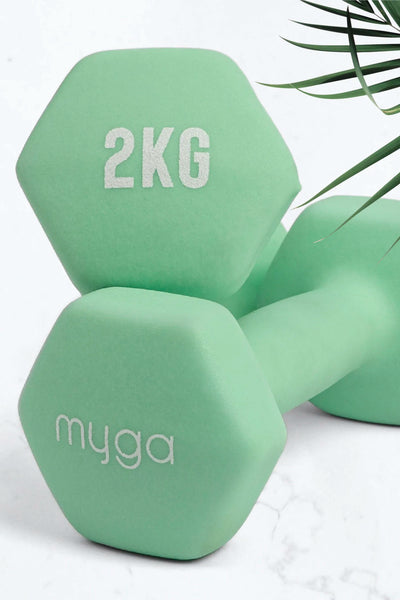A Foolproof Guide to Journaling
When people think about journalling, they usually assume it's something that requires a lot of creativity, time, and effort. But that couldn't be further from the truth... Journalling can be as messy or neat as you want. It's YOURS and it's important to use it in a way that suits you!
Keeping a sleep journal can help alleviate stress and overwhelm, one of the most common reasons for poor sleep. Journalling can be a cost-effective way to help you through tricky times in your life. In stressful or traumatising times, writing can be an aid in expressing and processing negative emotions and improve mental health.
Why should you bother?
The benefits of keeping a wellness journal outweigh the reasons not to (spoiler alert: there aren't any) that can all help you keep a good sleeping routine.
Benefits include:
- Keep control of your thoughts
- Set and achieve goals
- Set affirmations
- Reflect on the day
- Relieve stress
- Boosts your memory
- Keeps you creative
- Improve mental health
- Greater self-awareness
- A great addition to your night-time routine
Writing daily is an amazing way to do inner work. It can lead to breakthroughs and help you process difficult emotions and situations, making it important to be brutally honest.
It also helps with mindfulness as it teaches you how to be in the present moment. Nowadays, it's so easy to scroll on TikTok for hours on end and forget where we are, but with journalling, we can focus on our lives and squash any difficult emotions that come up.
Find your why
This is probably the most important point to consider. Why do you want to journal? Is it to manage stress? Get better at writing? Or just simply write down thoughts? Any reason is good enough for starting and having one is more likely to keep you motivated.
Staring at a blank page can be extremely daunting and off-putting, and the idea of starting a journal for the first time can seem overwhelming. You can write whatever comes to your mind, jot down bullet points or make a to-do list. Whatever you choose doesn't matter, what's important is that you keep going until the book is full.
What do you need to get started?
A pen and a notebook. That's pretty much it!
Any notebook will do, however, if you're new to journaling, you're going to want a little bit of structure to get you started.
Our End of Day Wellness Journal does just that. It's semi-guided so it doesn't feel forced and allows you to freely write whatever you want with exercises including gratitude, reflections and affirmations. These prompts will get your pen flowing! Following the psychological principles in the journal will help elevate your mood which is paramount to allowing your body to get a deeper and more restful sleep!
Writing by hand stimulates the brain's reticular activating system meaning that whatever you're thinking about is brought to the forefront of your mind. Putting your thoughts down on paper can allow you to remove these thoughts, ready to focus in the morning so you can get a good night's sleep.[Text Wrapping Break]
Extra items you might need to make it a better experience:
- Coloured pens and highlighters
- Correction fluid
- Rulers
- Fun stickers
Types of journaling
Gratitude journal
No matter how difficult life can sometimes feel, there's always something to feel grateful for. Family? Friends? Food on the table? A warm house? Absolutely anything that you feel you usually take for granted, write it down.
This is a great journal to look back on when times get tough and you feel like the world's against you.
Stream of consciousness journal
It is a method for describing thoughts and feelings that pass through a person's mind as they are narrated. It's your internal monologue - but on paper.
Reflection journal
A reflection journal is a great way to have a look into your day and see what good or bad things happened. Did you get embarrass yourself at work? Did you get promoted? Absolutely anything that happened, write it down. A reflection journal can help provide a better understanding of your thought process day to day.
Collage journal
There are two ways to do this: either creating vision boards on what you want your future to look like or storing memories. Did you go out with your friends today and take pictures? Put them in your collage journal!
and so much more... the possibilities are endless!
Tips to start and how to keep at it
Consistency is key
As mentioned above, you want to have a reason why. Having a reason to start journalling is going to keep you motivated to carry on.
Set a reminder
Following on from the above point, setting a reminder will keep you consistent with your journal. You could even download a productivity app to track your daily progress.
Don't punish yourself if you break the schedule though. Sometimes life gets in the way and it's unavoidable. As long as you get back on it as soon as possible, there's no issue in missing a day or two!
Keep it realistic
Know that you're unlikely to write pages upon pages of thoughts and feelings when you first start journalling, it just isn't realistic.
Having unrealistic expectations with your journal can discourage you from wanting to do it. If you feel like you're not writing enough, you might think "Well, what's the point?" but the truth is, even writing a couple of sentences is enough. Start small and increase over time.
Use prompts
Either find a journal that is semi-guided/guided or find thousands of prompts online that'll help get the pen flowing.
For example:
- How am I feeling today?
- What and who am I grateful for?
- What could've gone better today?
- Did I achieve anything?
- Where do I see myself in 6 months?
- Write down reasons you have faith in yourself
- Describe your favourite memory with a loved one
A good prompt can spark an array of ideas that could lead to writing and writing and writing…
Set the scene
Light a candle, make a cup of tea... Anything that's going to make you more excited to journal. As you'll be writing before bed, make the experience as relaxing as possible!
Have it by your nightstand
If you have it by your nightstand, right in your face, the chances are you're going to pick it up and use it. If you hide it away in a drawer or somewhere outside of your bedroom, you're going to forget about it. Poor journal!
Remove distractions
Get off social media, and turn off your TV. If there's anything that's going to stop your creative juices from flowing, it should be removed. You want to be open and honest with your journal.
If you feel like you really won't be able to concentrate without your electronics or the TV in the background, set a timer. For example, set yourself a timer for 10 minutes and then you'll know at the end of that time, you can go back to doing whatever you want!
Protect your journal
You might find that you're holding back on writing some things as you're scared of someone finding your journal and reading it. The best way to stop this from happening is by keeping it with you at all times. Even the people you trust the most might be tempted to have a look at it.
When you know your journal is for your eyes only, you'll feel the freedom that comes with it. You won't worry about what other people think. You don't censor your thoughts, so why would you censor what's written? Be free!
The good thing about this is that you can jot down thoughts if anything comes to your mind during the day - no matter where you are!
Make it a habit
It takes 66 days to form a habit. That's 66 days to make sure you're showing up for yourself every day and writing your thoughts and feelings. After that, it should be as natural as brushing your teeth or eating breakfast. Be consistent and in no time you won't even have to think about it.
How can it help with sleep?
Of course, you could write in your journal at any time of the day. In fact, doing it in the morning might be beneficial to you. However, at Echor, we believe that spilling your thoughts and writing them down before bed can help with your stress levels. If you go to bed thinking about something that's worrying you, the chances are, you're not going to be getting sleep any time soon.
However, writing it down can help remove it from your mind temporarily, allowing you to come back to it the next day. There's nothing more important than getting adequate sleep in our eyes!
Dim the lights, light an Echor End of Day Candle and relax as you allow your pen to flow throughout your journal. Whatever works for you, our journal is here to help you get started on your writing journey...









